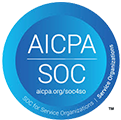
Whose Job is it Anyways?
A leader’s role in building organizational culture
“What’s the culture like here?”
If you look up “common interview questions asked by candidates” on Google, you’ll most likely run into the line above. And, unfortunately, for said candidate, the responses are usually the same – fun-loving, encouraging, hard-working, like a family – but what does all that really mean? And as HR professionals and seasoned leaders, how can we start to differentiate our team and organizational culture from the rest?
Culture is created by consistent attitudes and behaviors across the organization and the way the teams interact with each other. Meaning, it can vary drastically from team to team and organization to organization. The right company culture will have a positive impact on productivity, engagement, and morale. But if you get it wrong, expect turnover and frustration. A lot of it.
Unfortunately, many leaders are under the impression that culture builds itself, or that as long as the company is succeeding, the culture will follow. But as leadership development professionals, we know it’s not that simple. Every leader has to work together to build a strong organizational culture. But how?
Use these 4 steps to train your leaders how to create and sustain a strong team culture:
1. Define it
Gather your team together and ask them what they value in their workplace. Keep them engaged and dig into the qualities they’re looking for in their colleagues. This is a great way to make sure there is synergy and buy in to hold the team accountable.
Questions to define your team culture:
- When do you feel the most motivated at work?
- What about our team brings you the most joy?
- What is a quality you see in our team that you’d like to see more of?
2. Hire it
Don’t push those answers to the wayside. Hire by them and communicate them to your team, new and old. It’s crucial to weed out people who would negatively disrupt the culture and bring people with the same values to the organization.
Questions to assess culture fit in an interview:
- Describe the work environment where you are the happiest and most productive.
- What characteristics did you like most/least about your previous team?
- What role do you play on your current team? How does it help?
3. Integrate it
Build your culture. Identify into the team’s daily agenda: connect your culture to your espoused values; dedicate time in meetings specifically highlighting how people are embodying the culture; and build it into your bylaws and policies.
Questions to ask in meetings to support your new culture:
- How can you live out X today at work?
- How have you seen our team succeed at X, or where can we improve this week?
- What can we do to support each other in our roles this week?
4. Live it
Your team looks to you as an example, so you should embrace the qualities you want them to embody. If you’re trying to become a “coaching culture” then act like a coach – encourage them, develop them, and ask them questions that challenge their critical thinking skills.
Questions to ask your team to hold you accountable:
- What can I do to better support X value?
- How have you seen me (or not seen me) live out X value this week?
- How can I be a better example of X for the team?
It’s up to leaders to create their team’s culture, but it’s up to us to teach them how.
Is teaching your leaders to build a stronger culture on your to-do list? See how Optify can help.




